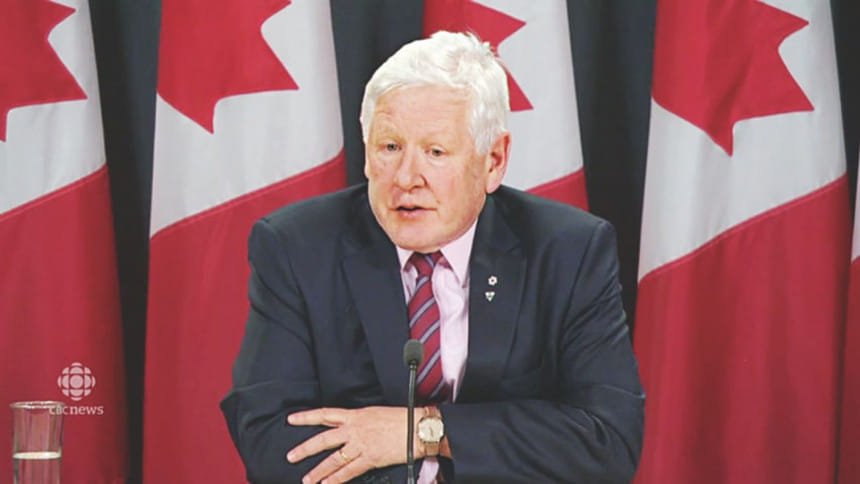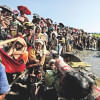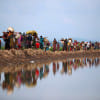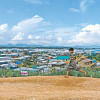Bangladesh not alone

“The fight is not over by any means. If people think that they have somewhere to hide, or that they have somewhere to go where they won't have to face accountability, that is sadly mistaken. There will be accountability.”
---Bob Rae
Myanmar must be held accountable for crimes against humanity, said Canadian Prime Minister's Special Envoy to Myanmar Bob Rae yesterday.
He emphasised the need to uphold universal values of human rights and assured Bangladesh that it was not alone in sharing the burden of the Rohingya crisis.
He made these comments at a public lecture on the Rohingya refugee crisis held in the capital.
“All of Bangladesh society needs to know you are not alone. We all have a collective responsibility,” he said in a question-answer session with the audience following the lecture.
“The fight is not over by any means. If people think that they have somewhere to hide, or that they have somewhere to go where they won't have to face accountability, they are sadly mistaken. There will be accountability,” he told journalists.
Some 700,000 Rohingya fled to Bangladesh since late August last year following a crackdown by the Myanmar military. The situation is now seen as the world's fastest growing refugee crisis.
Myanmar security forces are accused of killing and raping Rohingyas, and burning and looting Rohingya houses in Rakhine-- atrocities that United Nations termed ethnic cleansing.
Despite demands from various parts of the world, Myanmar's atrocities have not been referred to the International Criminal Court (ICC) yet. The UN Security Council has yet to take any concrete steps against Myanmar mainly because of opposition from China and Russia, two countries with veto powers.
The UNSC delegation, after visiting Bangladesh and Myanmar last week, said the atrocities require proper investigation.
Bob Rae suggested that there should be motion and debate in the Security Council. If the motion is defeated, then it is defeated.
“But still we have an opportunity to go to the [UN] General Assembly,” he said.
The Centre for Peace and Justice (CPJ) of Brac University organised the lecture at the Brac Centre Inn. It was attended by the representatives of the UN and other aid agencies in Bangladesh, along with academics and diplomats.
Rae, who was appointed special envoy to Myanmar by Canadian Prime Minister Justin Trudeau in October last year, has travelled to Indonesia, Bangladesh, Myanmar, Vietnam and the UN in New York to discuss the crisis.
Canada is one of the countries that have been vocal on the Rohingya crisis. Canadians also demanded revoking Myanmar's de facto leader Aung San Suu Kyi's honorary citizenship of Canada.
In his report submitted to Trudeau early April this year, Bob Rae suggested that Canada take a leadership role in responding to the Rohingya crisis by ramping up humanitarian aid and development efforts.
“Canada also should lead an international effort to investigate and collect the “clear evidence” of crimes against humanity in Myanmar,” he had written in the report.
He arrived in Dhaka on Wednesday and will join Canadian Foreign Minister Chrystia Freeland today to visit the Rohingya camps in Cox's Bazar. Freeland will also attend the Organisation of Islamic Conference Foreign Ministers' meeting in Dhaka beginning on Saturday.
Bob Rae, former premier of Ontario, said Canada would push other countries to address the Rohingya crisis.
“The response to my report to the Canadian government is very positive. There will be a detailed response in the next few days.
“It is not acceptable that the people of Bangladesh should be expected to bear this burden on their own. It's not right... We all have [the] responsibility to share the burden,” he said when representatives of the aid agencies mentioned they were running short of funding.
On holding Myanmar accountable, he said, “There are great many countries and great many people who are determined to make it happen. And that's the entire force of international law in that direction.
There can't be impunity. There can be no avoidance of responsibility for crimes against humanity.”
He said people were supposed to be treated with dignity as individuals and as groups. That was the foundation of international law, he said.
“What we need is enforcement of the rule of law. I think there will continue to need to be work done at the ICC. I think there will continue to be people who are gathering evidence at the camps,” said Rae, who also teaches at the University of Toronto.
Bob said he didn't believe for a moment that the campaign for enforcement of human rights was going to stop or that it was just confined to a few countries.
They said they had not received 10 percent of the $951 million appeal launched in Geneva for meeting the humanitarian needs of the Rohingya until December this year.
On repatriation, he said that was still the best solution to the Rohingya crisis, but that a lot of dialogue between Myanmar, Bangladesh and the international community was required.
“I think slowly but surely we began to build up a greater support for the principle that there has to be repatriation with dignity and with security and in a way that is sustainable and respects the political rights of the Rohingya. That's still the foundation of the best solution.
“Until we get there, and even after we get there, we have to provide people with humanitarian assistance,” he said and suggested that Bangladesh properly communicates how the global community could share the burden of the crisis.
He also said Canada and other countries should be more engaged in the process for a political solution to the Rohingya crisis.
“I am hoping our Prime Minister [Justin Trudeau] will respond positively too. I think if some countries step up and say we are going to do more, other countries will do more.”
Brac University Vice Chancellor Dr Syed Saad Andaleeb said if Myanmar is not held accountable for the genocidal crimes, such crimes will continue to happen in other countries.
The university's CPJ Executive Director Manzoor Hasan also spoke on the occasion.
The others who spoke are Brig Gen (Retd) M Shakhawat Hossain, former foreign secretary Shamsher Mobin Chowdhury, ActionAid Country Director Farah Kabir, World Food Programme Country Director Christa Rader.

 For all latest news, follow The Daily Star's Google News channel.
For all latest news, follow The Daily Star's Google News channel. 








Comments